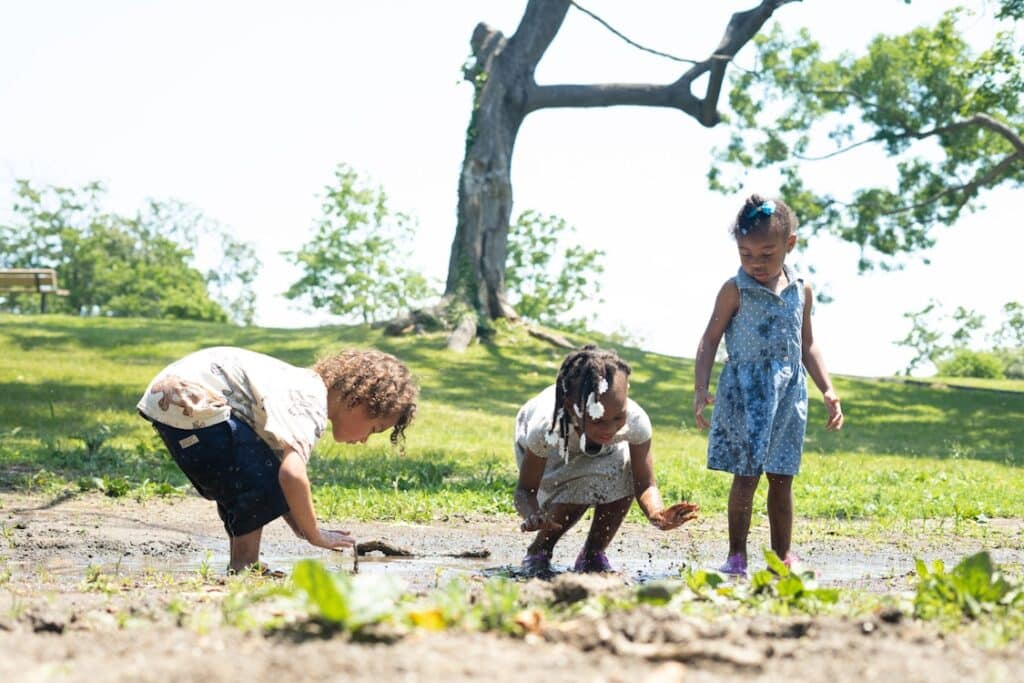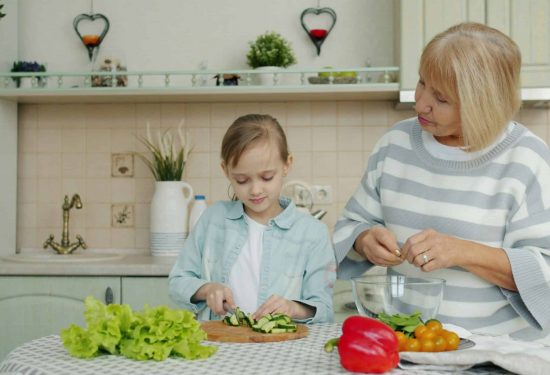I remember it like it was yesterday: The grass was always really green, the sun was really bright but it wasn’t uncomfortably hot, and there was always something to laugh about. These are the memories that come to mind when I think about the time I spent with my “Tati,” a name we all affectionately called the family, friend and neighbor (FFN) caregiver who I spent all of my out-of-school time with growing up. Tati was not technically a relative, but she felt like family.
Tati was known in the community as the person anyone could go to when they needed safe and loving child care for their children. When my parents migrated here from Haiti, they were determined to work extremely hard to ensure my siblings and I had what we needed. This often meant working two jobs each while raising three kids. They knew they would have to rely on a trusted caregiver for child care support while they worked nontraditional hours to make ends meet. My youngest sister, who was not yet school age, would be dropped off at Tati’s house in the morning and I would walk there with friends after school. When the school-aged kids arrived, Tati would have snacks ready for us and instruct us to finish our homework so we could go outside and play. I will never forget how warm her hugs felt or how she always made sure to ask each one of us how our day was in our native Creole. These seemingly small things made Tati’s house feel like an extension of home.
FFN caregivers like Tati are pillars in their communities. With over 5 million FFN caregivers who look after 11.5 million children in the U.S. each year, families rely on FFN care to meet their child care needs. By definition, FFN caregivers are the grandparents, aunts, family friends, and neighbors who provide care in a home-based setting. These caregivers are usually license-exempt due to the small number of children in their care.
Like my parents, many dual-language learner families prefer FFN care due to the shared language and culture. I can remember having afternoon snacks of paté, a warm, flaky pastry filled with ground beef and vegetables native to Haiti. This meal was just one of many that Tati made for us while in her care. These meals provided a sense of comfort at the end of the school day.
Tati’s availability during nontraditional hours offered a sense of stability that was vital to my family’s survival. Rain or shine, school day or holiday, Tati was there with her doors open, ready to provide loving care from 7 a.m. until late into the evening.
When I asked my parents a few years ago how much Tati charged them for child care, their answer didn’t surprise me.
“She charged just $20 a week for both you and your sister. She knew we could not afford anything more and worked with us to help us out.”
These wages are not far off from what most FFN caregivers earn today. When paid, FFN caregivers earn an average of $7,420 annually. This is often because most FFN caregivers don’t consider themselves providers, but instead caring individuals providing loving care as a duty to their families or communities. Despite their long hours and commitment to great care, caregivers like Tati are not eligible for additional benefits such as paid time off, sick time, health insurance, or retirement benefits. Their care keeps the community together and the economy afloat while they struggle to get by.
The commitment to honor and celebrate FFN caregivers through FFN Appreciation Week was born in part from memories of caregivers like Tati who help lift up so many children and families in their communities despite the challenges they face themselves.
FFN caregivers are assets to their communities. They are part of the fabric that weaves together generations of children and families. Home Grown celebrates FFN Appreciation Week to share our love and appreciation for these caregivers, while also shedding light on the opportunities to offer better support and solutions that will reinforce FFN care and caregivers so that they can continue to do the meaningful work that families and communities need.
FFN Appreciation Week is a chance to share our voices collectively in support of the amazing FFN caregivers all around us. We invite you to join us in celebration this year. Take a moment to think of an FFN caregiver who positively impacted you in the past or is currently impacting your children today, and share your gratitude with them.
Today, I thank Tati for always providing delicious meals and warm hugs, and for her kind and compassionate care that left a lasting impact on so many other children and families.
To learn more about how to get involved in FFN Appreciation Week, visit ffnappreciationweek.org.




